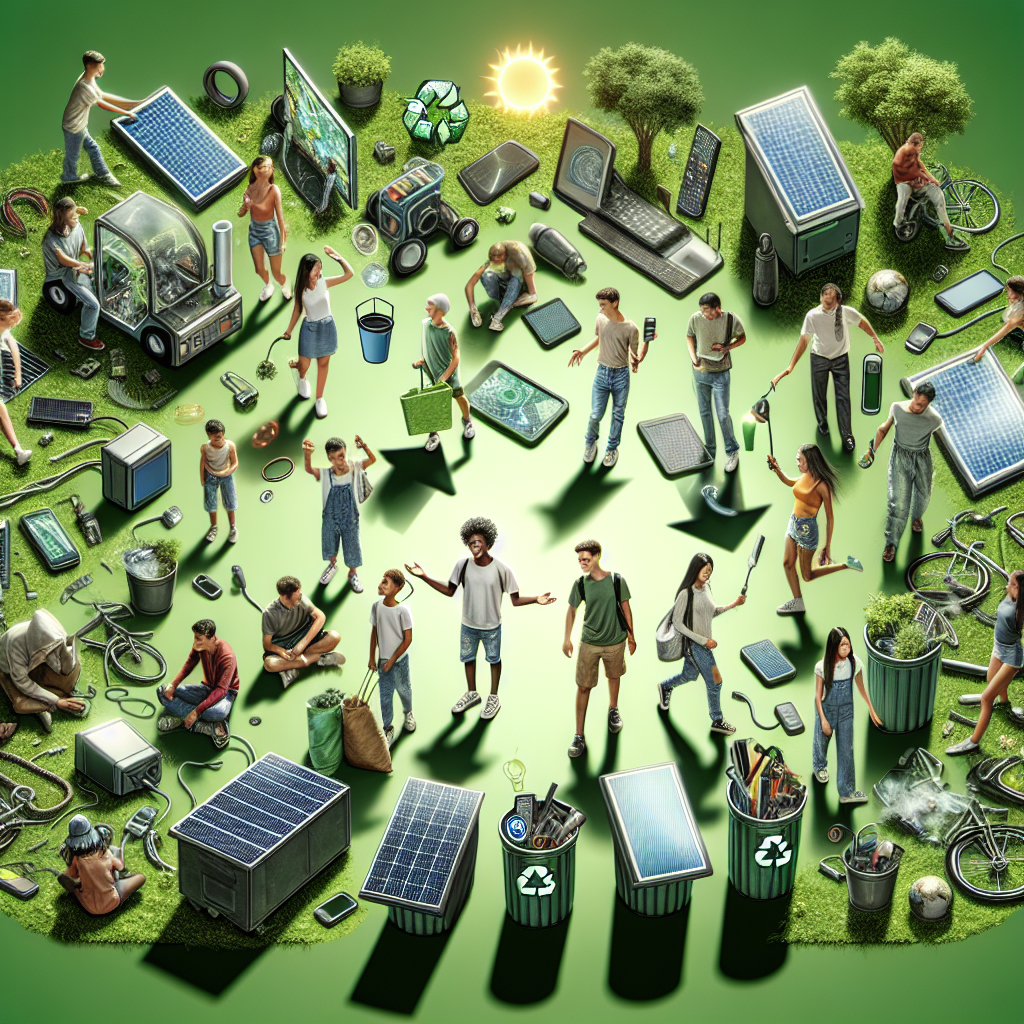Blog Ecobraz Eigre

Generation Z and the future of sustainable e-consumption
Generation Z is transforming electronic consumption with a focus on sustainability. This movement is driving responsible practices such as proper disposal, recycling and re-registration of devices, in line with current legislation, guaranteeing a sustainable future for electronic waste.
Generation Z profile and its influence on sustainable consumption
Generation Z, made up of individuals born between the mid-1990s and the early 2010s, has a heightened environmental awareness and a critical attitude towards unbridled consumption. With predominant access to digital technologies, these young people directly influence consumer trends, seeking electronic solutions that consider sustainability and environmental responsibility from manufacturing to disposal.
Legislation and regulation applicable to sustainable electronic consumption
In Brazil, the challenge of sustainable electronic consumption is backed by specific legislation that guides the management and disposal of electronic waste. The Decree No. 10.086/2019 regulates the National Solid Waste Policy, instituted by Law No. 12.305/2010, establishing guidelines for reverse logistics and the proper collection of this waste.
In addition, the National Solid Waste Management Information System (SINIR) - https://sinir.gov.br/ - is an official platform that promotes transparency and the monitoring of sustainable waste management, including electronics, helping consumers and decision-making sectors to follow recommended practices.
Recommended practices for sustainable consumption and disposal of electronics
Sustainable electronic consumption involves not only making a conscious choice at the time of purchase, but also implementing safe mechanisms for disposal. For this, correct disposal at authorized points is an essential part of the process, and it is possible to make an schedule for e-waste collection, guaranteeing an efficient and responsible logistics chain.
When it comes to information security, especially when disposing of digital media such as hard drives, the safe sanitization of these devices should be practiced to protect sensitive data and avoid risks to privacy, in line with recommended technical standards.
Environmental and social impacts of sustainable consumption
The adoption of sustainable practices in electronic consumption contributes to reducing the environmental impact of extracting raw materials, reducing waste generation and mitigating pollution, as pointed out by technical studies and monitoring by CETESB. At the same time, it fosters a circular economy, encouraging the reuse, recycling and effective recycling of components.
The role of decision-makers in the transformation of electronic consumption
Decision-makers in the ESG, EHS, purchasing, technology and legal areas play a key role in incorporating and encouraging sustainable practices, aligning internal policies with current standards and environmental certifications. In this way, they guide procurement, management and disposal processes that respect the life cycle of products and reinforce environmental responsibility.
Therefore, generation Z is driving the transformation of electronic consumption by demanding greater transparency, responsibility and innovation, aspects that are essential for the sustainability of the sector and for complying with Brazilian legal requirements.

Deixe um comentário
O seu endereço de e-mail não será publicado. Campos obrigatórios são marcados com *